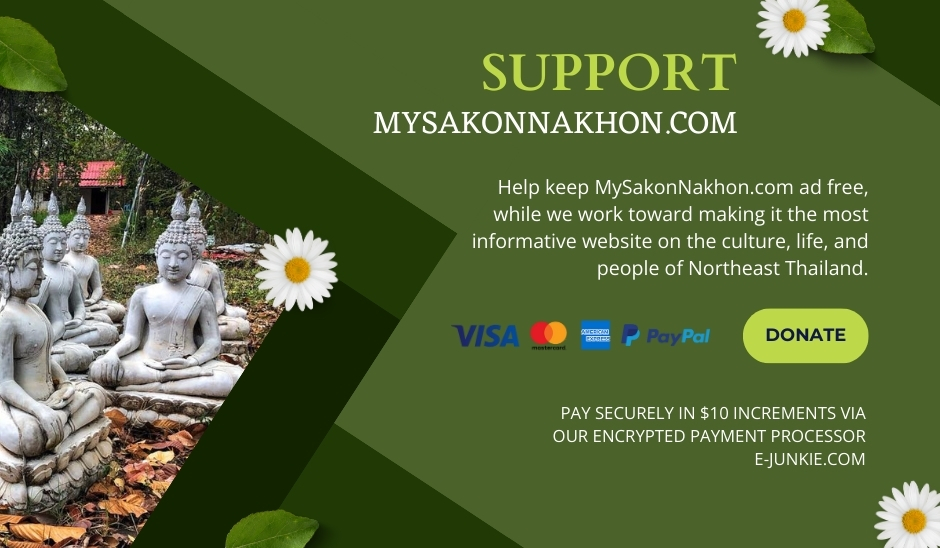
Avoiding Criticism in Thailand while Achieving Success

In Thai culture, criticism is avoided. As a result, Thailand is often criticized! According to the critics, the Thai people’s avoidance of criticism is stifling the kingdom’s growth into a first world country and economic powerhouse like Japan and South Korea.
However, the rulers of Thailand (stretching back to King Mongkut of the mid- 19th century) have always believed that social harmony trumps economic growth and technological advancement. The modernization of Thailand began with King Mongkut’s embrace of Western innovations during the 1850s. His stewardship earned him the nickname “The Father of Science and Technology” in Siam.
But the spiritually wise king (who prior to assuming the throne was a monk by the name of Vajiranano Bikkhu) knew well of the downsides of Westernization, stating that farangs often were filled with anxiety and sleeplessness — unable to smile in the same way that Thais famously do.

How to Improve Thai Workers & Students
While Western countries trumpet the virtues of constructive criticism, psychologists have long noted that people rarely improve their behavior from criticism. This is especially true in Thailand, where criticism is viewed as impolite, causing a loss of face.
So, how does one go about improving the behavior of workers and students in Thailand, if you are to avoid criticism? The answer isn’t simply lots of “Dee Mak!” positive reinforcement. That by itself rarely works either — for it’s always competing with other behaviors and habits the Thai person feels good about doing.
Improvement is achieved by providing simple and clear explanations of the desired behavior, modeling this behavior yourself, and by being absolutely clear about the consequences of undesired behavior.
While this seems simple enough on the surface, it can be tricky to implement in the workplace and classroom.
For example, I once knew a Thai restaurant owner who had continuous problems training wait staff to the high level of service he wanted — for they all had no prior experience. I solved this problem for him by suggesting that he print out cards which had a list of about 10 things which every waitress/waiter had to do for every table of customers.
These tasks included things like: take drink order within 5 minutes of being seated; promote the daily special; return within 5 minutes after delivering any dish to check if customer is happy; take away empty dirty plates; check for empty drinks every 10 minutes, etc. etc.
Each item on the to-do list was accompanied with a check box. When he hired new wait staff, they would accompany him around for the first 3 days while he waited on tables, checking off on a card every time he did one of the things on the to-do list. Then for the next 3 days, he would accompany the new waiter/waitress around while he checked off each item on their to-do list (and gave well-earned positive reinforcement).
By the end of the week, he had a server who clearly understood what was expected of them, and who almost always turned out to be a good employee over the long term. To make sure the wait staff never forgot their to-do list, the card was attached to the inside cover of the book where they kept customer orders and bills.
Each new wait staff was placed on a one month probation period. They were told if they forgot 5 times to do anything on their to-do list during this probation period, they would be let go. After several years of using this system, he only had to do that once.
Improving Thai Student Behavior Without Criticism
Here is another example, but for the school setting. Students arriving late to class is a common practice at Thai universities, even on days when there are exams. This lateness often causes foreign lecturers, who value being on time, to lose their temper or show annoyance when a student comes strolling in 15 minutes late on exam day. This loss of temper benefits no one, and should always be avoided.
So, what should a teacher in Thailand do to encourage punctuality? It’s not enough to simply tell the class that you’ll penalize them for being late to take the test, because some may say they didn’t hear or understand you, while others will think they have a 5-10 minute window where they won’t be considered late (as other teachers may allow this).
Students might also think they can be a few minutes late if you are regularly late for class, or that if they are late the penalty will be small.
Therefore, to cure the habit of tardiness among students, a teacher in Thailand needs to:
1) Be on time themselves. (Modeling)
2) Detail precise penalties for lateness, including point deductions for the course, and significant point deductions on tests when late for exams. These penalties should be on the class syllabus.
3) Clearly define what late means. Be sure students understand that there is no difference if you are one minute late or 15 minutes late.
4) Have a NO exceptions late policy. Tell students no reasons for lateness will be accepted. Of course, you can accept lateness in certain individual cases, but this should never be part of the policy.
5) Get all students to verbally acknowledge they understand the lateness policy. “Khao jai ma?” “Khao jai!”
6) Remind students again of the late policy about 1 month after the start of class.
7) The day before an exam, remind students of the point penalty for being late.
8 ) If any students are late on exam day, show no anger or frustration, just smile at the late arrival and apply the point penalty to their exam.
9) After the test, show late students their exam score and how much it has been reduced because they were late. A 10% reduction is a common penalty.

Successful Modeling in Thailand
Now, critics of this article — and there will be many! — will say that these are simple examples of behavioral improvement. What about more complex skill sets involving the larger issues of business, government, and schooling.
For these situations, modeling can again be used to great effectiveness, combined with competition.
For example, the largest and most successful pizza business in Thailand, Pizza Company, began by modeling the pizzas and service of Pizza Hut (the first pizza chain to enter Thailand), and then improved on those recipes and service to greatly out-compete the American chain.
Meanwhile, Thai high schools with advanced English programs (EP) have modeled the curriculums and course materials of schools in native English speaking countries to great success, while maintaining important Thai cultural values.
These schools have produced Thai students whose English speaking skills are far superior to those of past years, and whose successes are elevating the teaching practices in Thai schools without EP programs. Rajabhat university “Demonstration Schools” such as the Vithidham School in Sakon Nakhon are also innovating in ways that also contribute to education reform in Thailand.
As to the Thai government, too many critics focus on the bickering and debates that occur on the national level in Bangkok, ignoring what is happening upcountry. These critics (many of whom are expat Thais living in foreign countries or Western educated Thai journalists) are completely unaware of the improvements occurring at the village, district, and provincial level beyond Bangkok — improvements which often occur because the officials of one province model what has been done successfully by their colleagues in other province.
Over the past 20 years, I have witnessed improvements across the spectrum in Thailand, due to modeling and marketplace competition. After all, over 50% of Thais are self-employed, and the most successful ones usually model the practices of those who already have been successful in their field of endeavor.
Thanks to social media in Thailand, the spread of successful business practices and teaching methods have increased dramatically among the population, with new professionals and entrepreneurs learning from their more experienced counterparts on YouTube, TikTok, and Facebook.
Thus, despite having a culture that avoids criticism, Thailand continues its steady march of slow but continued progress, while maintaining personal and social harmony.
- The Royal Ploughing Ceremony in Thailand – A History - May 8, 2024
- Dying Well the Buddhist Way in Thailand - May 7, 2024
- Comforting Words for the Brokenhearted in Thailand - May 6, 2024




